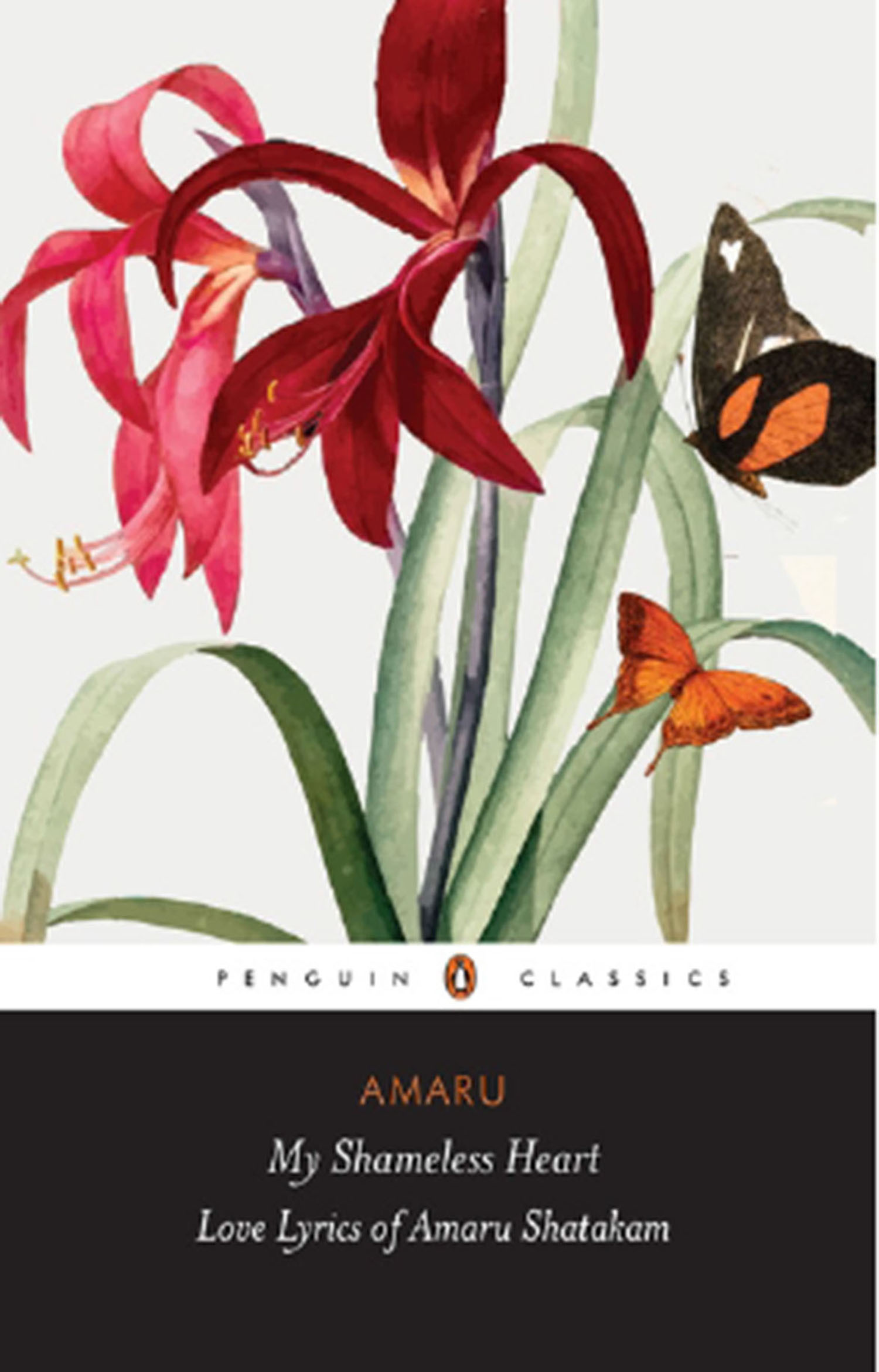Amaru Shatakam, translation of some hundred love lyrics is one of the best specimens of the genre in classical Sanskrit. Nothing is known about the author but it is ascribed to a king of Kashmir. There is also the fantastic legend identifying him with the soul of Adi Sankaracharya transferred into the body of the dead king through yogic powers. However, the story has been rejected by modern scholarship. Also there is no mention of a king by the name Amaru in the history of Kashmir.
There is very little data available about the date of the poems. But Anandavardhana (c. 850 AD), the great Kashmiri poet, quotes him and his verse ‘kathamapi’ in his Dhvanyaloka. Vamana (c. 800) also quotes some of his verses in his text. Probably therefore Amaru flourished in the seventh or eighth century.
According to the translator AND Haksar, the oldest recension of Amaru Shatakam is the one commented upon by Arjuna Varma Deva (c. 1215 AD), a descendant of Bhoja of Dhara. It is still in use and Haksar has made use of it himself. The work Amaru Shatakam itself has been very popular for a long time. In addition to our own scholars like Anandavardhana and Vamana, many foreign scholars have praised the poem.

